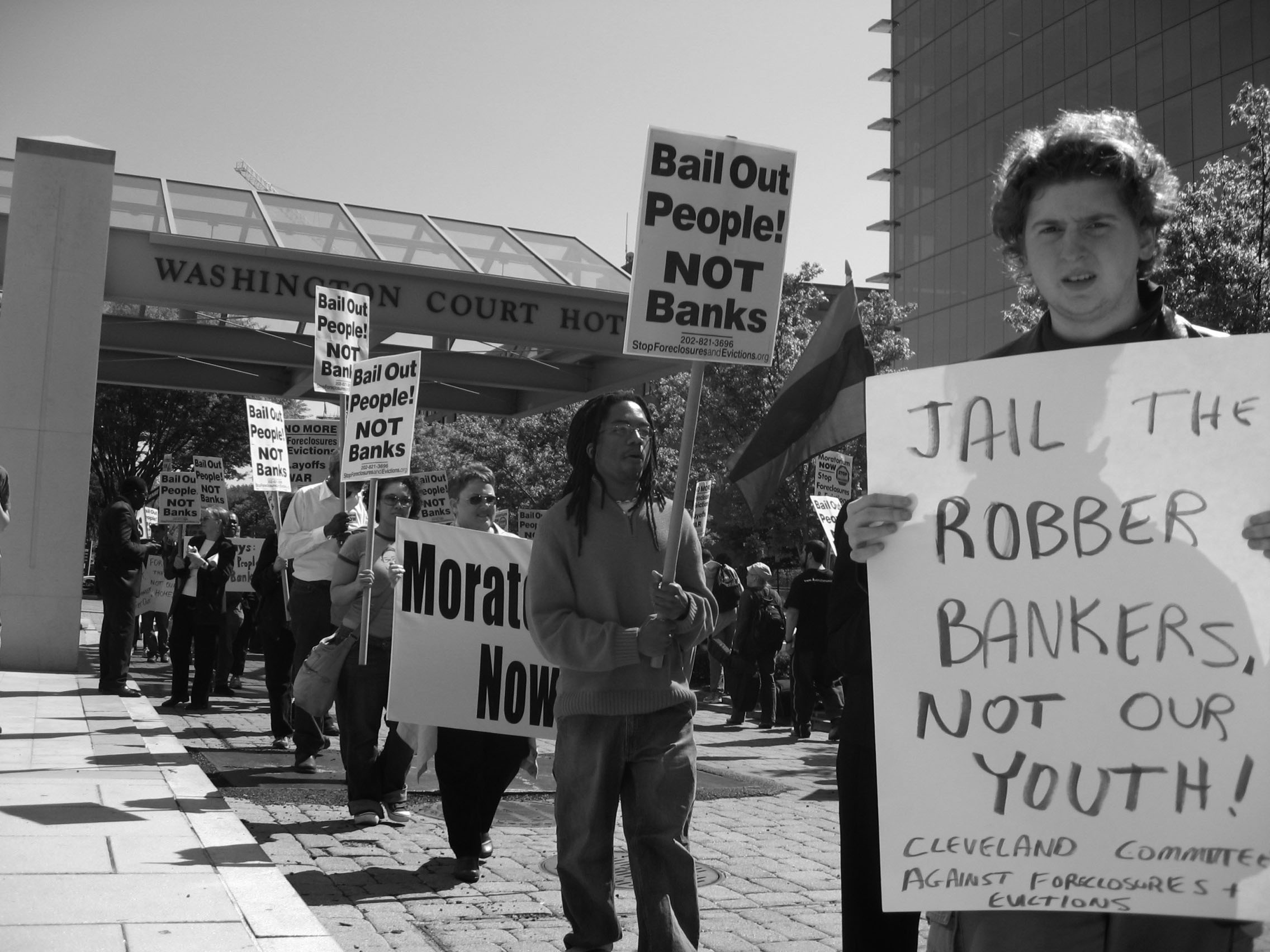economics
Nationalisation — a key demand in the socialist program

By Dave Holmes
China and the global capitalist economic meltdown
By Peter Boyle
Action in Solidarity with Asia and the Pacific (ASAP) -- As the US, Japan and Europe slide into recession, the leaders of many smaller countries are desperately hoping that continued strong growth in the Chinese economy, which has contributed about 15 per cent of world economic growth in recent years, might save them from this meltdown.

Meanwhile, in Africa ... a tale of two `bailouts'

Rwandan President Paul Kagame distributes mosquito nets. Studies show that malaria, which kills more than a million Africans every year, could be contained in just a few years at the cost of $3 billion a year.
By Jean-Paul Piérot
Original October 11, 2008, l'Humanité article in French: ``Et pendant ce temps, l’Afrique …''. Translated by Gene Zbikowski
While Africa needs US$72 billion a year in aid, hundreds of billions are being freed up to pay Western banks for the consequences of speculation.
New African resistance from below to global finance

By Patrick Bond
October 25, 2008 -- A far-reaching strategic debate is underway about how to respond to the global financial crisis, and indeed how the North's problems can be tied into a broader critique of capitalism.
The 2008 world financial meltdown has its roots in the neoliberal export-model (dominant in Africa since the 1981 World Bank Berg Report and onset of structural adjustment during the early 1980s) and even more deeply, in 35 years of world capitalist stagnation/volatility. Africa has always suffered a disproportionate share of pressure from the world economy, especially in the sphere of debt and financial outflows. But for those African countries which made themselves excessively vulnerable to global financial flows during the neoliberal era, the meltdown had a severe, adverse impact.
John Bellamy Foster: `Capitalism has reached its limits'

Postscript to "The Financialization of Capital and the Crisis"
Tenue au Venezuela, à Caracas, du 8 au 11 octobre 2008 en présence d’experts et de chercheurs en provenance d'Argentine, d'Australie, de Belgique, du Canada, du Chili, de Chine, de Corée du Sud, de Cuba, d’Egypte, d'Équateur, d'Espagne, des États-Unis, des Philippines, de France, d'Angleterre, du Mexique, du Pérou, d'Uruguay et du Vénézuéla, la Conférence Internationale d'Économie Politique « Réponses du Sud à la Crise Économique Mondiale » a ouvert un large débat sur l'actualité économique et financière de l'économie mondiale, les nouvelles perspectives et les défis que doivent relever les gouvernements et les peuples du Sud.
Fictitious capital and real compacts
By Anitra Nelson
The global economic crisis: An historic opportunity for transformation
An initial response from individuals, social movements and non-governmental organisations in support of a transitional program for radical economic transformation.
Preamble
October 11, 2008 -- Academics and researchers from Argentina, Australia, Belgium, Canada, Chile, China, Cuba, Ecuador, France, Mexico, Peru, Phillipines, South Korea, Spain, United Kingdom, United States, Uruguay and Venezuela participated in the International Political Economy Conference: Responses from the South to the Global Economic Crisis, held in Caracas October 8-11, 2008. The conference stimulated a wide-ranging debate on the current economic and financial health of the global economy, the new perspectives and the challenges to the governments and peoples of the South posed by the international financial crisis.
The meeting concluded that the situation has worsened in the last few weeks. It has progressed rapidly from being a series of crises in the financial markets of countries in the centre and has turned into an extremely serious international crisis. This means that countries in the South are in a very difficult situation.
The crisis threatens the real economy and, if energetic and effective actions are not taken immediately, all peoples in the world could be drastically punished; especially the least-protected and most-neglected sectors.

